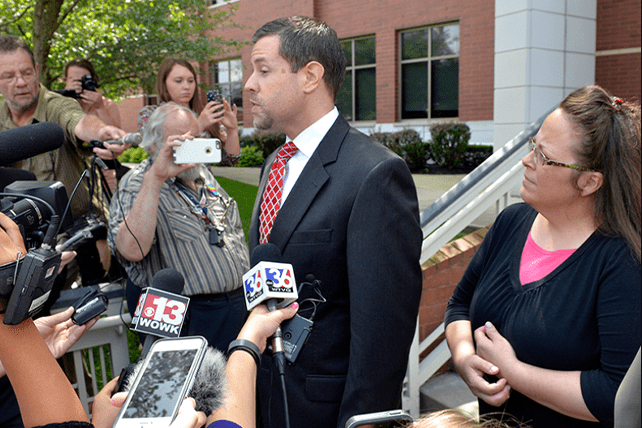Staver also suggested justices may be more willing to take up the case given the passage of the 2022 Respect for Marriage Act, which, among other things, requires states to recognize same-sex marriages if they were performed in places where it is legal. The result, Staver argued, would reduce the nationwide impact if the court once again made same-sex marriage a state-level decision.
“It has taken one of the policy reasons for not overruling Obergefell off the table,” he said.
Even so, LGBTQ+ rights activists have long insisted that, even with the Respect for Marriage Act, rights would be lost if Obergefell were overturned. And their supporters include a broad swath of religious Americans: A 2024 Public Religion Research Institute report found majorities of white mainline Protestants, white Catholics, Hispanic Catholics, Jews and Buddhists all support keeping same-sex marriage legal, and many denominations now perform same-sex marriages. In the past, clergy have even filed suit to help legalize same-sex marriage at the state level.
But Staver said support for his cause is growing — or at least becoming more organized. He pointed to state resolutions passed by lawmakers in Idaho and elsewhere asking the court to reconsider Obergefell, as well as a resolution passed by the Southern Baptist Convention last month that called for “the overturning of laws and court rulings, including Obergefell v. Hodges, that defy God’s design for marriage and family.”
This article originally appeared here.

